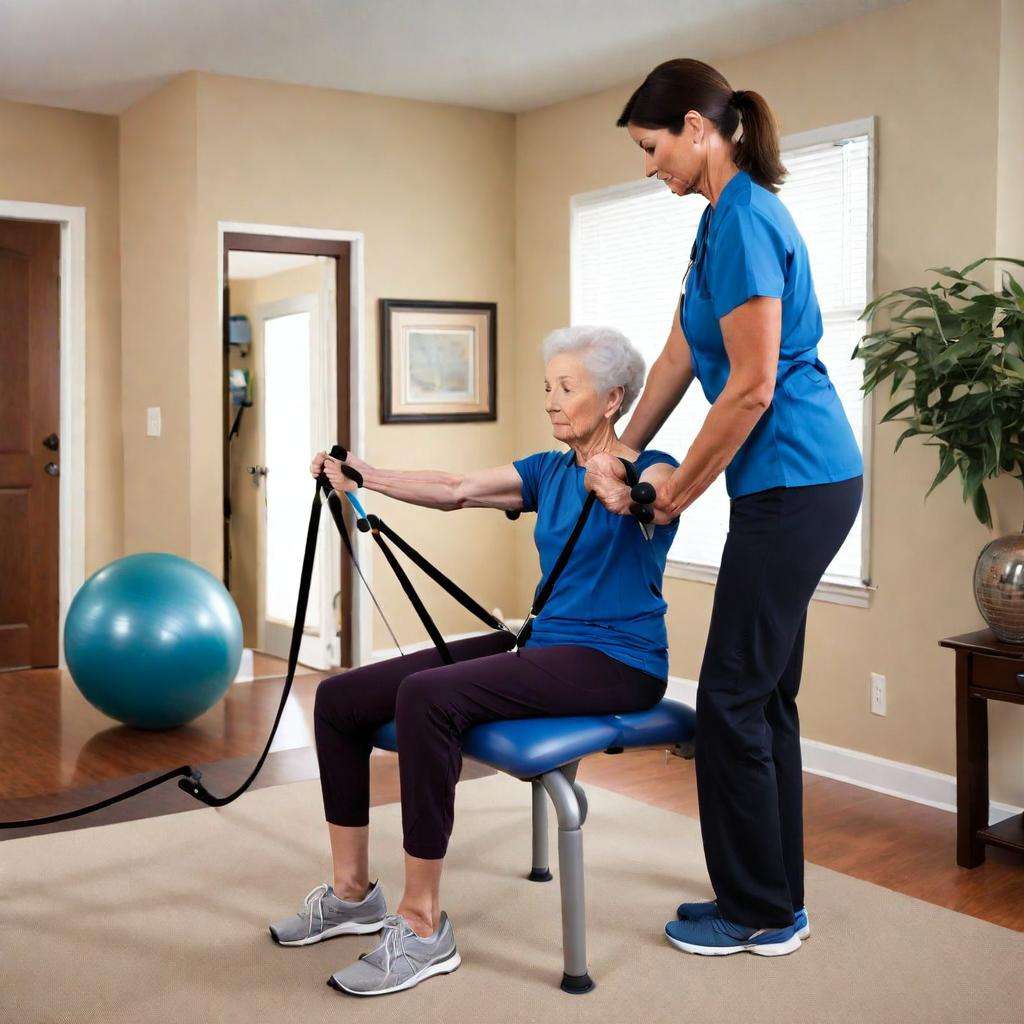Home health care services have become a vital aspect of modern healthcare, offering individuals the opportunity to receive medical care and assistance in the comfort of their own homes. This trend is not only convenient but also supports faster recovery and enhances the quality of life. Understanding the various types of home health care services available can help you make informed decisions for yourself or your loved ones. In this article, we will explore the diverse range of services provided under home health care, from medical care to non-medical support.

1. Skilled Nursing Care
Skilled nursing care is provided by licensed nurses who can administer medications, monitor vital signs, and manage medical equipment. This type of care is ideal for patients recovering from surgery, those with chronic illnesses, or individuals requiring wound care. Nurses also provide education to patients and their families about managing health conditions at home.
Key Services:
- Medication administration
- Wound care
- IV therapy
- Monitoring vital signs
- Patient and family education

2. Physical Therapy
Physical therapy at home aims to aid patients in restoring strength, mobility, and functionality. Customized exercise plans crafted by physical therapists play a pivotal role in enhancing patients’ physical abilities and mitigating the risk of additional injury. This service is particularly beneficial for individuals recovering from surgery, injury, or those dealing with conditions like stroke or arthritis.
Key Services:
- Personalized exercise programs
- Pain management
- Balance and coordination training
- Post-surgical rehabilitation
3. Occupational Therapy
Occupational therapy is centered around empowering individuals to carry out daily activities autonomously. Collaborating closely with patients, occupational therapists facilitate the acquisition of essential skills for both personal and professional tasks. They might also recommend modifications to the home environment to enhance safety and accessibility.
Key Services:
- Assistance with daily activities (bathing, dressing, eating)
- Home environment assessment and modification
- Adaptive equipment training
- Cognitive and developmental therapy
4. Speech Therapy
Speech therapy stands as a crucial resource for individuals grappling with challenges in communication, swallowing, or cognitive-communication disorders. In their practice, speech therapists dedicate themselves to enhancing speech, language, and swallowing functions, frequently affected by conditions such as stroke, neurological disorders, or head injuries.
Key Services:
- Speech and language exercises
- Swallowing therapy
- Cognitive-communication therapy
- Voice therapy
5. Medical Social Services
Medical social workers provide support and resources to help patients and their families cope with the emotional, social, and financial aspects of illness and recovery. They assist with accessing community resources, long-term planning, and navigating healthcare systems.
Key Services:
- Counseling and emotional support
- Resource identification and connection
- Assistance with healthcare paperwork
- Long-term care planning
6. Home Health Aide Services
Home health aides offer personal care services that do not require medical training but are crucial for daily living. They assist with activities such as bathing, dressing, grooming, and meal preparation. These services are invaluable for individuals who need assistance with basic self-care activities.
Key Services:
- Personal hygiene assistance
- Help with mobility and transfers
- Light housekeeping
- Meal preparation and feeding assistance
7. Companionship Services
Companionship services are provided to individuals who may not have serious medical needs but require social interaction and assistance with everyday tasks. Companions can provide emotional support, engage in activities, and help with errands.
Key Services:
- Social interaction and conversation
- Recreational activities
- Accompaniment to appointments
- Assistance with shopping and errands
8. Nutritional Support
Proper nutrition is crucial for recovery and maintaining health. Dietitians and nutritionists can visit patients at home to assess their dietary needs, create meal plans, and provide education on healthy eating habits. This service is especially beneficial for individuals with specific dietary requirements or those recovering from illness.
Key Services:
- Nutritional assessment and planning
- Meal preparation guidance
- Education on dietary needs
- Monitoring dietary intake
9. Palliative Care
Palliative care focuses on providing relief from the symptoms and stress of serious illness. The goal is to improve quality of life for both the patient and the family. This type of care can be provided alongside curative treatment and is tailored to the individual’s needs.
Key Services:
- Symptom management (pain, nausea, fatigue)
- Emotional and spiritual support
- Coordination with other healthcare providers
- Support for family members
10. Hospice Care
Hospice care is designed for individuals who are in the final stages of a terminal illness. The focus is on comfort and quality of life rather than curative treatment. Hospice care teams provide comprehensive support to patients and their families, addressing physical, emotional, and spiritual needs.
Key Services:
- Pain and symptom management
- Emotional and spiritual support
- Bereavement support for families
- Coordination of care among healthcare providers
Choosing the Right Home Health Care Service
Selecting the appropriate home health care service depends on the specific needs and conditions of the patient. It’s important to assess the level of care required, the qualifications of the care providers, and the range of services offered. Consulting with healthcare professionals and evaluating the credentials and reputation of home health care agencies can help ensure that you or your loved one receives the best possible care.
Conclusion
Home health care services encompass a wide array of medical and non-medical support, tailored to meet the diverse needs of patients in the comfort of their homes. From skilled nursing and therapy to companionship and hospice care, these services play a crucial role in enhancing the quality of life and promoting recovery. Understanding the different types of home health care available can help you make informed decisions and ensure that you or your loved ones receive the necessary care and support.

